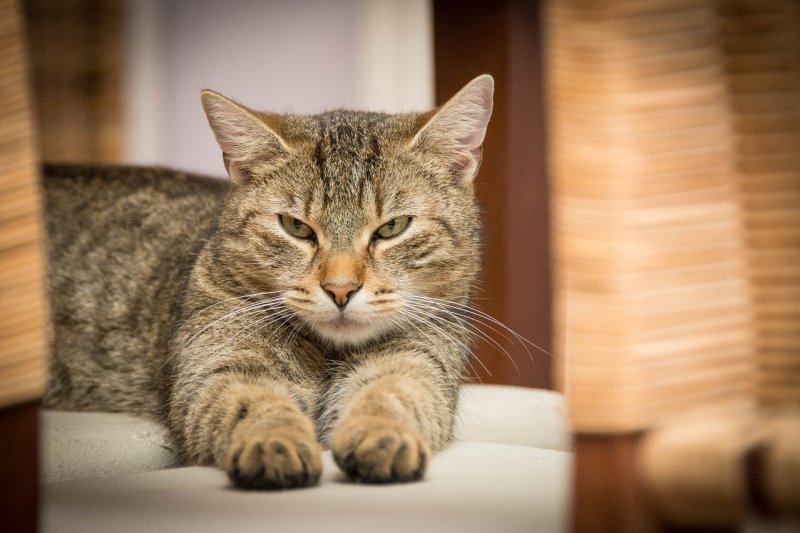Researchers obtained a whole genome sequence of the virus infecting a house cat in Pennsylvania and found it was the Delta variant. Photo by bogitw/Pixabay
A cat in Pennsylvania that turned out to be infected with the Delta variant of the SARS-CoV-2 virus is the first known case of the variant occurring in a domestic feline in the United States.
Whole-genome sequencing also revealed that the variant was nearly identical to those circulating in people in the area at the time, according to the University of Pennsylvania team that made the discovery.
The 11-year-old female cat was brought to the university's Ryan Veterinary Hospital in Philadelphia in September with gastrointestinal symptoms. The owner had COVID-19 and had been isolating from the cat for 11 days before it was brought to the hospital. Another member of the household had been looking after the cat.
The researchers obtained a whole genome sequence of the cat's virus and found it was the Delta variant. They did not have a sample of the virus from the owner, but the cat's virus was a close match to those circulating in people in the Philadelphia region at the time.
"When we looked at a random sampling of human sequences from our geographic area, there wasn't anything dramatically different about our cat's sample," said study senior author Dr. Elizabeth Lennon, a veterinarian and assistant professor at UPenn's School of Veterinary Medicine.
"So, our takeaway was that the cat was not infected by a virus that was somehow highly different," she said in a university news release.
The study was published recently in the journal Viruses.
Since the start of the pandemic, the coronavirus has infected a range of wild and domestic animal species, leading to concerns that jumps between species could lead to new mutations and harmful new variants.
"SARS-CoV-2 has a really incredibly wide host range," Lennon said. "What this means to me is that, as SARS-CoV-2 continues to be prevalent in the human population, we need to watch what's happening in other animal species as well."
Lennon noted that the cat's infection was only identified by testing its fecal matter. A nasal swab did not reveal the infection.
"This did highlight the importance of sampling at multiple body sites," Lennon said. "We wouldn't have detected this if we had just done a nasal swab."
More information
For more on COVID-19 and pets, see the U.S. Centers for Disease Control and Prevention.
Copyright © 2021 HealthDay. All rights reserved.
![]()
















